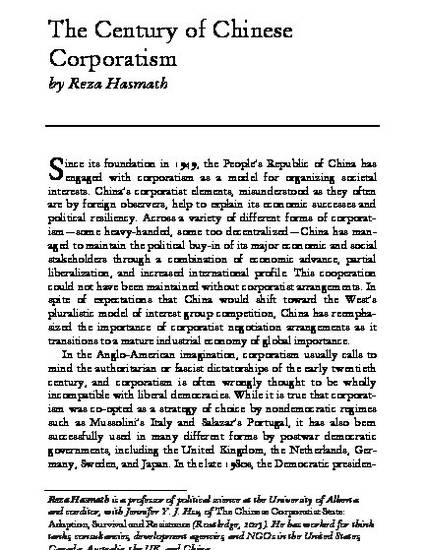
Article
The Century of Chinese Corporatism
American Affairs
(2020)
Abstract
Since 1949, China has tried a large number of successful and not-so-successful corporatist experiments. What these phases have in common is a ‘state corporatist’ (top-down) approach, albeit with shifting degrees of state involvement; and in the present era, a snail’s pace effort towards building a ‘societal corporatism’ (bottom-up). Over the same time period, we have also witnessed a shift from a centrally controlled corporatist state to one in which the local state has greater space to implement corporatist techniques – allowing the formation of business and professional associations at the local level, and providing them a space for local state-directed bargaining. As China embarks on its next decade, a consideration of Chinese corporatism is useful in two respects. First, foreign corporations and governments who engage in China, particularly if they come from pluralist-competitive societies, tend to misunderstand the nexus of businesses, organizations, and the state. They wrongful presume that state direction and corruption are synonymous. A more nuanced understanding of Chinese corporatism, however, leads to an important second point – that some lessons learned by Chinese experiments in corporatism, during the very period of its ascent to becoming an economic superpower, may be beneficial for foreign policymakers considering paths to a more stable public life.
Keywords
- China,
- state corporatism,
- societal corporatism,
- pluralism,
- policymakers
Disciplines
Publication Date
2020
Citation Information
Hasmath, R. (2020) "The Century of Chinese Corporatism", American Affairs 4(1): 194-206.
